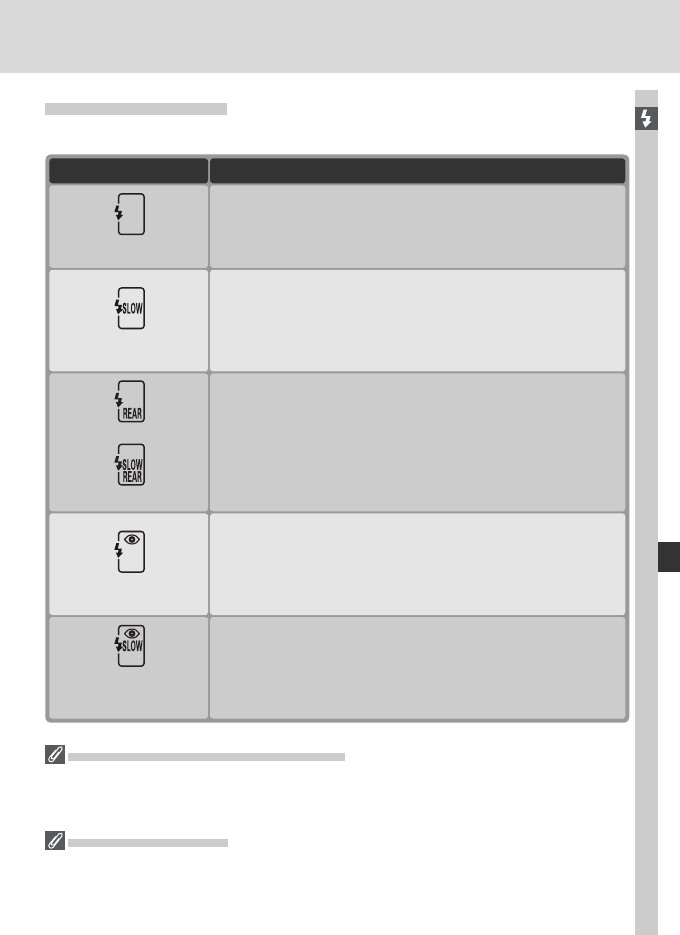
113
Taking Photographs—Flash Photography
Flash Sync Modes
The D2H supports the following fl ash sync modes:
DescriptionFlash sync mode
This mode is recommended for most situations. In pro-
grammed auto and aperture-priority auto modes, shutter
speed will au to mat i cal ly be set to values between
1
/
60 and
½50 s (
1
/
60 to
1
/
8,000 s with Auto FP High-Speed Sync).
Flash is combined with speeds as slow as 30 s to cap ture
both subject and background at night or under dim light.
This mode is only available in programmed auto and aper-
ture-priority auto ex po sure modes. Use of tripod is recom-
mended to prevent blur ring caused by camera shake.
In shutter-priority auto or manual exposure mode, fl ash fi res
just before the shutter closes, creating effect of a stream
of light behind moving objects. In programmed auto and
ap er ture-pri or i ty auto, slow rear-curtain sync is used to cap-
ture both sub ject and background. Use of tripod is rec om -
mend ed to pre vent blurring caused by camera shake.
In this mode (available only with SB-series 800, 80DX, 28DX,
28, 27, 26, and 25 Speedlights), red-eye reduction pre-fl ash
lights for approximately one second before main fl ash. Pu-
pils in subject’s eyes to contract, reducing “red-eye” effect
sometimes caused by fl ash.
Combines red-eye reduction with slow sync. This mode is
only available with SB-series 800, 80DX, 28DX, 28, 27, 26,
and 25 Speedlights in programmed auto and aperture-prior-
ity auto ex po sure modes. Use of a tripod is recommended to
prevent blur ring caused by camera shake.
Red-eye reduction
with slow sync
Red-eye reduction
Rear-curtain sync
Slow rear-curtain sync
Slow sync
Front-curtain sync
SB-Series 26, 25, and 24 Speedlights
Front- and rear-curtain sync modes for SB-series 26, 25, and 24 Speedlights are set
using the sync mode selector on the optional Speedlight. Camera red-eye reduction
settings take priority over mode selected with SB-26.
Studio Flash Systems
Rear-curtain sync can not be used with studio fl ash systems, as the correct syn chro -
ni za tion can not be obtained.


















